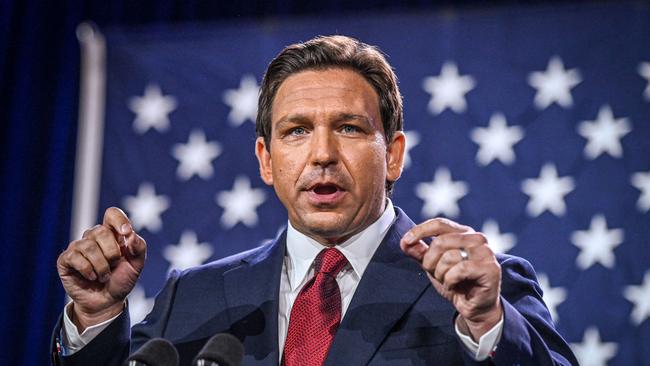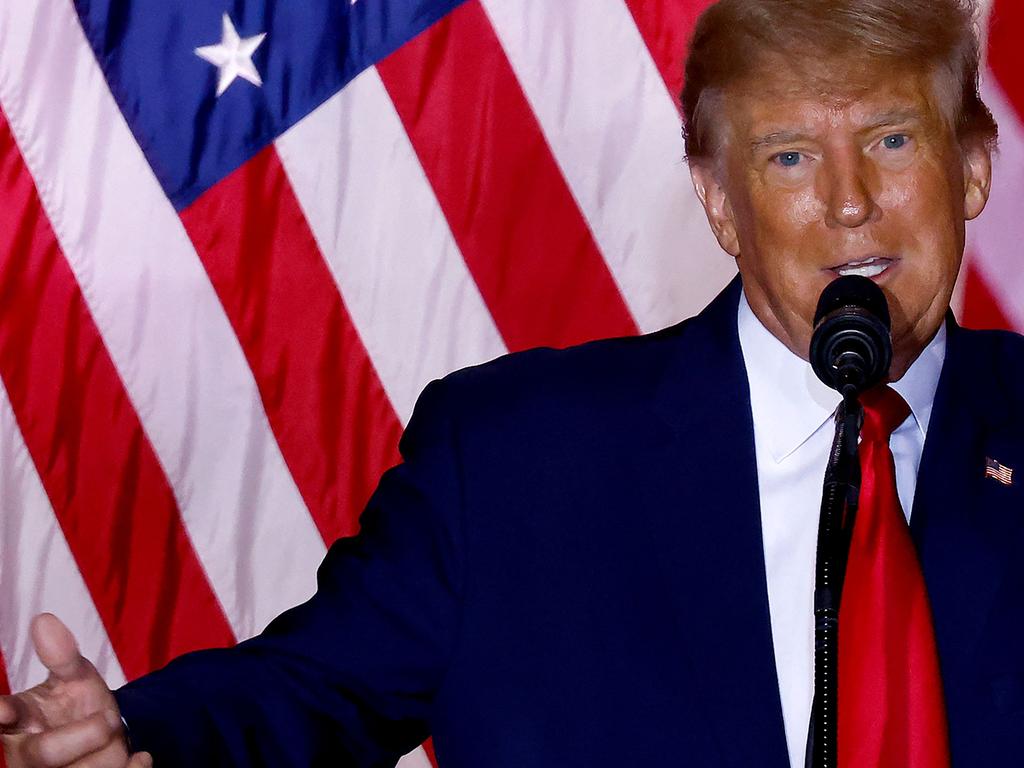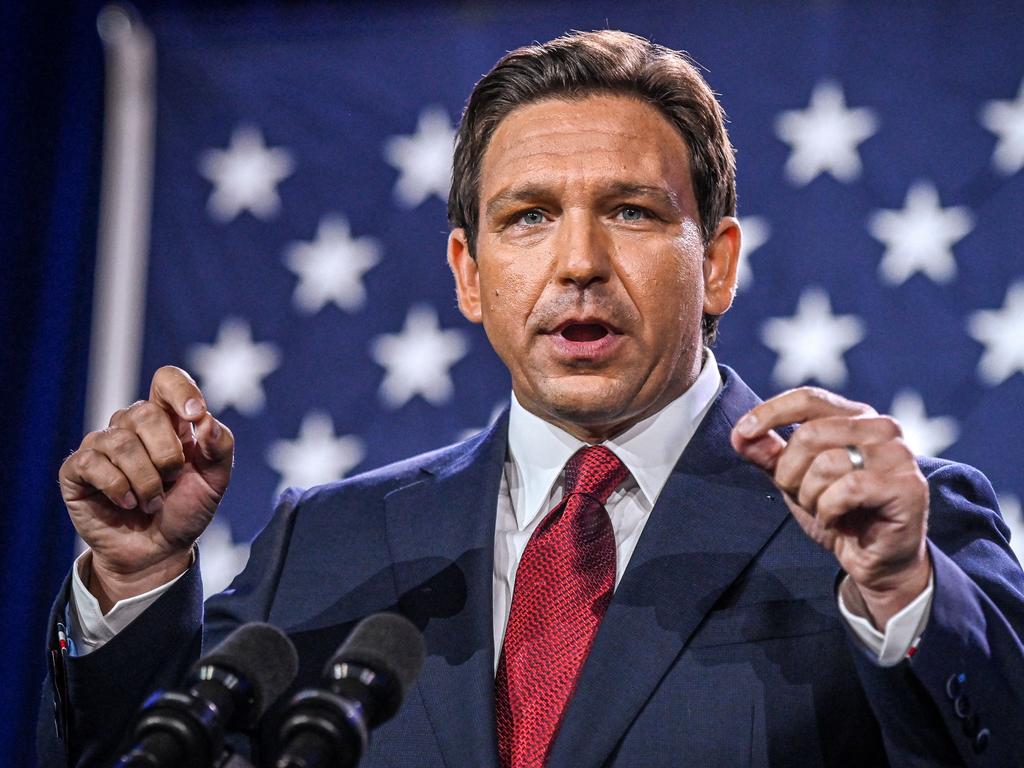Americans have voted, and Covid lockdowns lost
Donald Trump did badly out of last week’s elections, but so too did Covid restrictions as the five state governors who opened up their states early enjoyed huge wins.

It’s no surprise the administration waited until after the midterm elections to make the announcement, which allows the federal government to keep paying for Covid tests and vaccines, and helps sustain an air of crisis beloved by so many public health experts.
Joe Biden said in September, rightly, that Covid was “over”. Pandemic fatigue has set in across the US. Take-up of the latest round of bivalent boosters (meant to protect against all the variants) has flatlined at 10 per cent of the eligible population, which is those aged above five. They can’t give them away.
Donald Trump did badly out of last week’s elections, but lockdowns lost big time too, as the five state governors, including one Democrat, who opened up their states early in the pandemic enjoyed huge wins.
Ron DeSantis, Florida’s Republican governor who won a thumping victory and second term, has become the face of anti-lockdown policies, famously or infamously, depending on your view, preventing cities from forcing people to take the Covid-19 vaccine or wear masks.
“I lifted you up, I protected your rights, I made sure you could earn a living, I made sure you could operate your businesses,” he said in an October debate against his Democrat rival, Charlie Crist, who, by contrast said he would reintroduce mask mandates for the state’s 22 million people if the “experts” told him to.
But DeSantis won by almost 60 per cent of the vote, a state record, even in inner city parts of Florida that hadn’t voted Republican for a generation.
But he wasn’t the first to open up. Last week, Trump, fearful of DeSantis’s rising star, said of the Florida Governor he “didn’t have to close up his state, but did, unlike other Republican governors”.
Former vice-president Mike Pence, another likely candidate for the Republican nomination, similarly reminded a large audience last week that Brian Kemp, Republican Governor of Georgia, “was the first governor in America to open up again”, dubbing him “arguably the most successful conservative governor”.
In April 2020, Kemp, before any other jurisdiction and despite the vicious, hysterical fearmongering of “experts”, let shops including gyms, hairdressers, theatres and restaurants open their doors once again. It was, according to the left-leaning The Atlantic, “an experiment in human sacrifice”. Kemp clearly thought he made the right decision, otherwise he wouldn’t have spent the next two and a half years reminding everyone of it, including a week before the midterms in his debate with Democrat Stacey Abrams, whom he roundly defeated for a second time.
Kim Reynolds, Republican Governor of Iowa, a “state that doesn’t care if you live or die”, according to The Washington Post in February 2021, wasn’t far behind, reopening her state in May 2020. These differences in timing and regulatory footprint aren’t academic but rather emerging political gunpowder in the lead-up to the 2024 Republican primaries, in which Republican politicians and Trump will compete to burnish their freedom-loving credentials.
Kristi Noem, Republican Governor of South Dakota, another of the handful that opened up early, fired a warning shot to her GOP colleagues late last year. “We’ve got Republican governors across this country pretending they didn’t shut down their states, that they didn’t close their regions, that they didn’t mandate masks, that they didn’t need to issue shelter-in-places,” she told a conservative conference.
And don’t forget Jared Polis, Governor of Colorado, who was easily re-elected last week, being the first Democrat-run state to reopen in 2020. “The public health toll and the economic toll of lockdowns is extensive,” Polis said in November 2020, when Victorians in Australia had just finished their second of seven lockdowns that would last 270 days.
In 2018, these five governors’ average margin of victory over their opponents was 3.7 percentage points. Last week, it was 18.1 percentage points.
To be sure, the lockdown king and queen of the US, Democrat governor Gavin Newsom in California and Democrat Governor Gretchen Whitmer in Michigan, who kept their states and people holed up until around the middle of 2021, were also re-elected.
And they enjoyed little benefit in terms of Covid-19 outcomes. After adjusting for the age of the population (because the risk of death from Covid-19 remains vastly higher for the elderly), Florida was ranked 31st out of 50 states for Covid-19 deaths as of September, Iowa 32nd, Colorado 36th and South Dakota 21st. California, which had the longest and most intrusive measures arguably of any US state, came 38th, barely much different, and surely a shocking indictment on the effectiveness of “measures” that proved highly destructive, socially, economically and politically. Michigan was 24th.
Georgia, to be fair, did worst of the bunch, coming in at 15th, but states that topped the list had other things in common: Republican, poor and a relatively obese citizenry, factors that likely had much more to do with ultimate deaths rates.
Indeed, propensity to be vaccinated may have been a much bigger factor. Few states in the US compelled their citizens, as in Australia, to take the Pfizer or Moderna products.
Three analysts from Yale University recently found Republican-leaning counties had much higher deaths rates from or with Covid-19 than Democrat-leaning counties, and Republicans sought out vaccination at far lower rates.
The US “Covid emergency” is about to blast through 1000 days, but in the court of public opinion in at least five US states it was over long ago.








A few days after the US midterm elections concluded last week, the Biden administration quietly extended, for the umpteenth time, a “public health emergency” declaration until January next year. By then, the US will have been in an “emergency” because of Covid for almost 1100 days, which is quite an extrapolation from the “15 days to slow the spread” Americans were promised at the start.